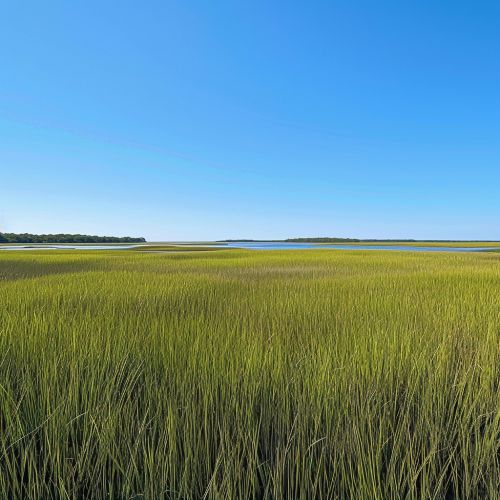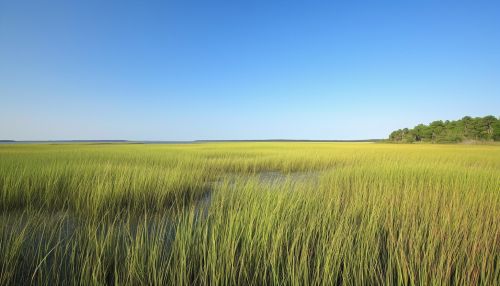Marshes
Definition and Characteristics
A marsh is a type of wetland that is primarily characterized by its soft and mineral-rich soils, and by its vegetation, which is dominated by grasses, reeds, and other herbaceous plants. Marshes can be found in various climates, from the arctic to the tropics, and they play a crucial role in maintaining ecological balance by serving as habitats for a wide variety of flora and fauna.
Marshes are often confused with other types of wetlands such as swamps and bogs. However, they can be differentiated based on their vegetation and water chemistry. Marshes are typically alkaline or neutral in nature due to the presence of mineral soils, whereas bogs are acidic and nutrient-poor.


Formation and Types of Marshes
Marshes are formed through a process called hydrological succession, which involves the gradual accumulation of organic matter and sediment in a water body. This process can take thousands of years to complete, and it results in the formation of different types of marshes, including tidal marshes, non-tidal marshes, and marshy lake shores.
Tidal marshes, also known as salt marshes, are found along coastlines and estuaries, and they are influenced by the rise and fall of the tide. Non-tidal marshes, on the other hand, are typically found in inland areas, and they can be further classified into freshwater marshes and brackish marshes based on their salinity. Marshy lake shores are a type of marsh that forms along the edges of lakes and ponds.
Ecological Importance
Marshes are ecologically important for several reasons. They serve as a habitat for a diverse range of species, including birds, fish, amphibians, and invertebrates. Many of these species are specially adapted to survive in the challenging conditions of the marsh, and some are found nowhere else in the world.
In addition to providing habitat, marshes also play a crucial role in nutrient cycling. They are often referred to as the "kidneys of the earth" because they filter out pollutants from the water that flows through them. This helps to maintain water quality and prevents the buildup of harmful substances in the environment.
Marshes also act as natural buffers against coastal erosion and flooding. The dense vegetation of the marsh absorbs wave energy and slows down the flow of water, reducing the impact of storm surges and high tides.
Threats and Conservation
Despite their ecological importance, marshes around the world are under threat from human activities. Drainage for agriculture and urban development, pollution, and climate change are some of the major threats to these ecosystems.
Conservation efforts for marshes typically involve protecting existing marshlands, restoring degraded marshes, and creating new ones. These efforts are often guided by the principles of wetland conservation, which emphasize the importance of maintaining the ecological integrity of wetlands.
